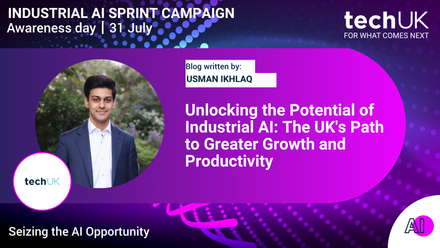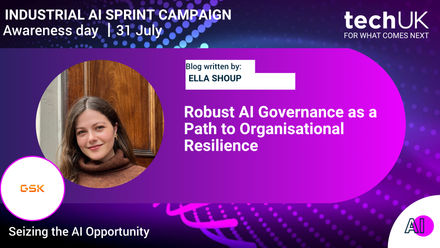Automation and augmented intelligence: a touch of AI pragmatism for defence
Cutting through the AI noise
Artificial intelligence (AI) is everywhere – from headlines to boardrooms – but not all the talk is well-informed. While some hype is warranted, much of it overlooks the simpler, proven technologies already delivering impact. In defence and the wider public sector, there’s great value in pragmatism: focusing on what works now rather than chasing "full-blown" AI.
As IBM has noted, many useful technologies aren’t AI at all – they follow instructions, process data, and get the job done. What distinguishes AI is its ability to learn and improve over time, adapting to complex tasks. But before we get to that point, there’s a range of automation tools that can deliver 60–70% of AI’s promised benefits, often at much lower cost. Perhaps these should be thought of as “anti-disruptive technologies” – resisting hype while still driving meaningful change.
Understanding pattern recognition and AI capabilities
At the heart of many AI systems lies pattern recognition. These systems can be trained on data to identify subtle trends that humans might miss – such as anomalies in medical scans. This capability underpins key AI functions:
-
Predictive analytics – forecasting future trends from past data
-
Decision-making support – weighing outcomes based on desirability
-
Environment sensing – such as autonomous navigation in vehicles
-
Natural language processing – recognising patterns in how we communicate
-
Generative AI – creating content that mimics existing styles
However, this still requires judgement. AI lacks the commonsense mental model that people develop over time. In specific contexts, such as diagnostic accuracy or pattern classification, AI can outperform humans – but it does so without imagination or general understanding.
Automation as the foundation
In contrast, automation focuses on rule-based systems that execute repetitive tasks without learning or adapting. Much of defence operations – and large parts of the public sector – involve exactly this kind of structured, rule-driven activity. These areas are ripe for automation.
By automating information-centric workflows, organisations can realise gains in efficacy, efficiency, and productivity – without waiting for speculative AI breakthroughs. This approach allows for a gradual and manageable transformation, supporting better decision-making through faster, cleaner data handling.
Moving toward augmented intelligence
Machine learning (ML) offers a bridge between static automation and more dynamic AI. ML systems learn from data, shifting some of the analytical load from human experts to machines. In defence, this suggests a pragmatic roadmap: focus first on automation and data integration, then apply ML to specific high-value areas.
Defence doctrines and operational models already provide a structured knowledge base. These can be used to train ML systems, evaluate performance, and progressively deploy AI “at the edge” – such as within autonomous vehicles or sensor networks.
This gradual transition creates a real opportunity for augmented intelligence: human-machine teams combining strengths. Machines process data, detect patterns, and support judgement calls; humans provide imagination, values, and context. This isn't about replacing people but empowering them – amplifying intelligence at organisational scale.
A final thought
As the UK shapes its AI future, it’s vital to distinguish real capabilities from hype. Pragmatic approaches, especially in areas like defence and public services, will deliver the most immediate value. Automation and machine learning are already here – and with the right strategy, they can pave the way for truly transformative augmented intelligence.
techUK - Seizing the AI Opportunity
For the UK to fully seize the AI opportunity, citizens and businesses must have trust and confidence in AI. techUK and our members champion the development of reliable and safe AI systems that align with the UK’s ethical principles.
AI assurance is central to this mission. Our members engage directly with policy makers, regulators, and industry leaders to influence policy and standards on AI safety and ethics, contributing to a responsible innovation environment. Through these efforts, we help build public trust in AI adoption whilst ensuring our members stay ahead of regulatory developments.
Get involved: techUK runs a busy calendar of activities including events, reports, and insights to demonstrate some of the most significant AI opportunities for the UK. Our AI Hub is where you will find details of all upcoming activity. We also send a monthly AI newsletter which you can subscribe to here.
Upcoming AI events
Latest news and insights
Subscribe to our AI newsletter
AI and Data Analytics updates
Sign-up to our monthly newsletter to get the latest updates and opportunities from our AI and Data Analytics Programme straight to your inbox.
Contact the team
Visit our AI Hub - the home of all our AI content:










